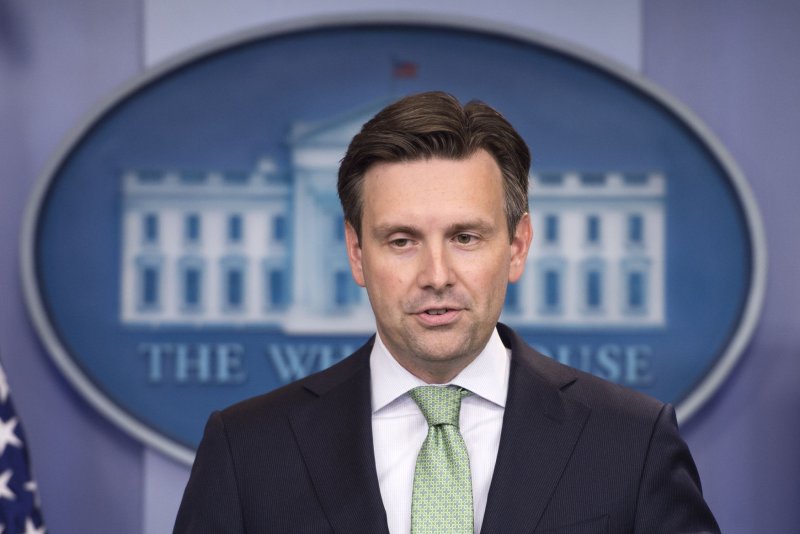White House Press Secretary Josh Earnest said Wednesday the United States cannot rule out the possibility of more North Korea sanctions. Pyongyang launched a SLBM early Wednesday that Kim Jong Un hailed as a "success." File Photo by Kevin Dietsch/UPI |
License Photo
WASHINGTON, Aug. 25 (UPI) -- The United States is not ruling out the possibility of further sanctions against North Korea in the wake of a SLBM launch.
But as provocations continue, the view from Washington is increasingly at odds with Pyongyang's closest neighbor, China.
White House spokesman Josh Earnest said Wednesday the United States continues to be concerned about North Korea's provocative and destabilizing behavior.
In light of recent events, Washington cannot completely rule out the possibility of additional "pressure" against Pyongyang, Earnest said, adding North Korea is a "rather unique place, and it's not clear that [sanctions] will work in exactly the same way."
The White House spokesman also defended THAAD deployment in South Korea and said the U.S. missile defense system is not the cause for concern that China has claimed it to be.
China disagrees with the U.S. position on THAAD and has repeatedly opposed its deployment.
In Beijing on Thursday, Chinese Defense Ministry spokesman Wu Qian said THAAD deployment is "not just a U.S.-South Korea issue but a concern for the strategic balance in the region.""
THAAD is "a violation of China's strategic interests and is undermining the strategic mutual interest between China and the United States," Wu said, according to South Korean news agency Yonhap.
Wu also said THAAD deployment is the equivalent of the opening of a "Pandora's box" of new problems.
"The United States says THAAD will not impact China, but the THAAD radar has a surveillance capability that extends" 620 miles, Wu said, adding the U.S. argument in favor of deployment is not convincing Beijing.
North Korea's missile threat continues to grow and the test-firing of a submarine-launched ballistic missile on Wednesday was condemned by China, Japan and South Korea.
The U.S. Korea Institute at the Paul H. Nitze School of Advanced International Studies at Johns Hopkins University has stated North Korea is on track to develop the capacity to strike regional targets, including Japan, by 2020.















